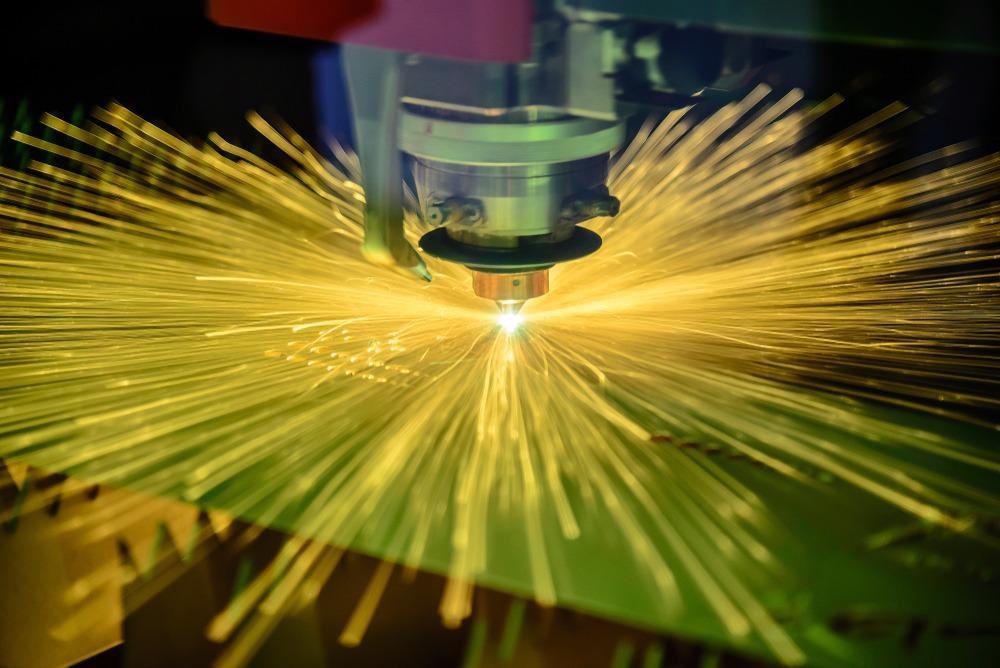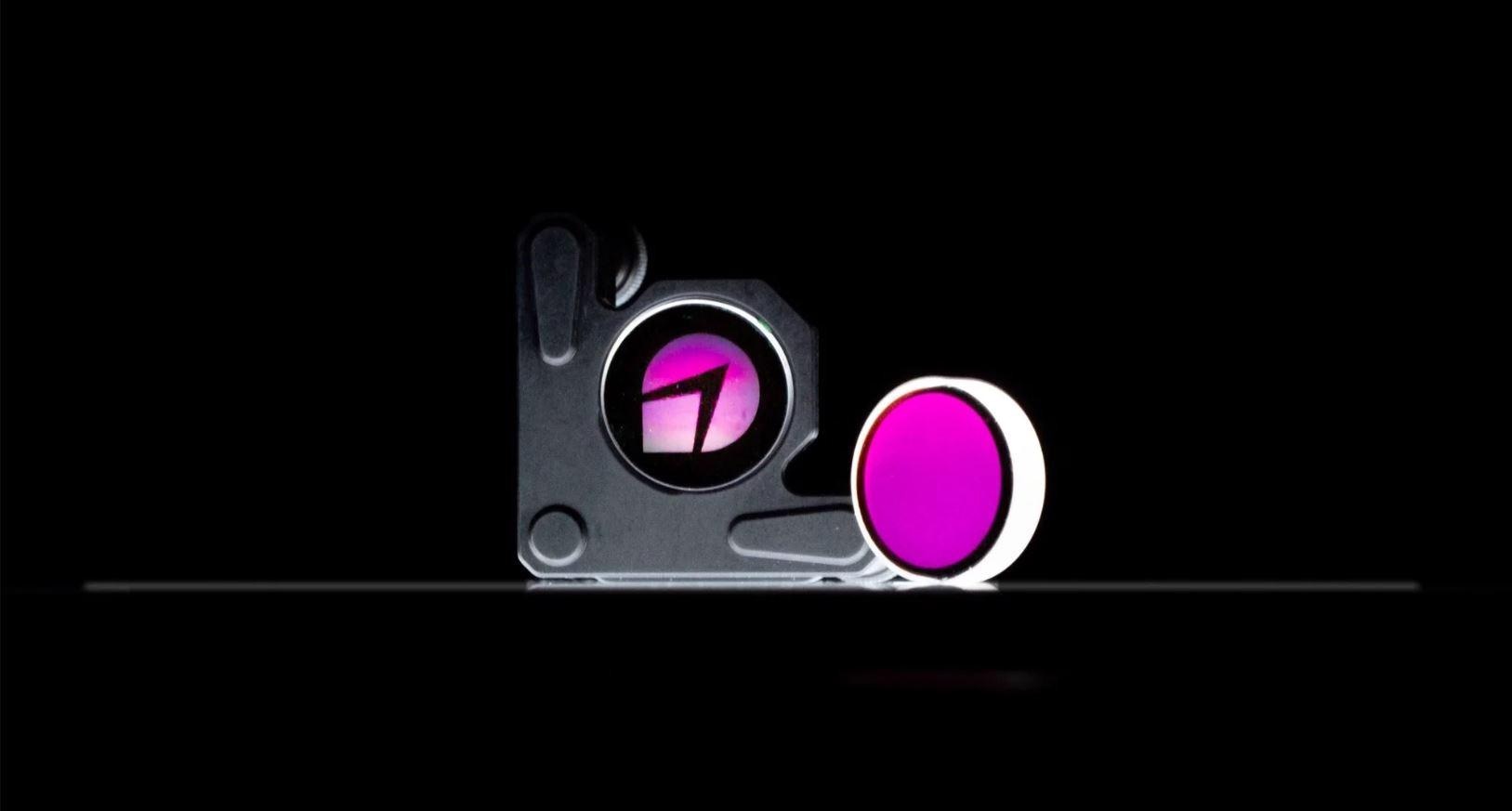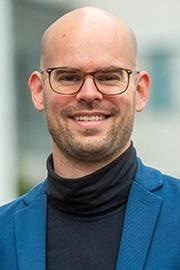Following the 2022 Laser World of Photonics tradeshow, we spoke with University of Bonn spin-off Midel Photonics, a start-up company whose laser beam shaping technology is hoping to sharpen up the laser industry.
Please could you introduce yourself and tell us about your role within Midel Photonics?
My name is David Dung and I am one of the four co-founders and managing partners of Midel Photonics, a laser technology start-up developing laser beam shapers. I am the head of business development and marketing strategy, and I have always had a passion for science and developing new technologies
How did you become involved with Midel Photonics?
During my Ph.D. in experimental quantum optics, I developed a new method using micro-delamination (Midel for short) to structure the surface of laser mirrors. Initially, this method was used in fundamental quantum research only.
While having a break traveling the world after my Ph.D., I thought about how I could combine my passion for physics with my enthusiasm for new technologies in industry. The answer was Midel Photonics.
When I returned, I found myself a strong team. Together, we further developed the manufacturing process and identified a business case for using structured mirrors as beam shapers for laser light in industry. Our idea was rewarded with an EXIST transfer of research grant, which enabled us to establish the project and to finally incorporate our company.
Our vision to provide laser beam shaping solutions for any application drives us to develop strategies for a well-performing business and to ensure our company achieves its ambitious goals.
It's great to learn about more and more possible applications of our technology in exciting conversations with potential customers.
What are the primary mission objects of Midel Photonics, and what solutions does it offer?
We at Midel Photonics make the most advanced tools in industry, lasers, even better. Lasers are already cutting, welding or marking metal or glass, for example. They are getting more powerful every year, but they still have a problem that you may know: Have you ever tried to cut a tomato with a blunt knife? The result was probably not satisfactory.
Although you can get through with a lot of force, the cut is a disaster - you lose a lot of juice and in the end, you have to clean the whole kitchen. In fact, it's the same with industrial lasers.
Their round and washed-out shape is like a blunt knife, leading to material defects, wasted resources and often costly rework. The round washed-out laser beam is no longer sufficient; that is exactly what we are changing with Midel Photonics!
We develop beam shapers as a component for the laser, where the simple laser beam is reflected at our product's interface. This creates a new beam shape, for example, with sharp edges. Our beam shapers are easy to integrate, tailormade and produced in just a few hours.

© Pixel B/Shutterstock.com
What are the benefits of integrating a continuous diffractive optical element into your manufacturing processes?
There are plenty of benefits for our customers, including higher quality and speed, as well as cost and resource savings. The increased availability of our products allows customers to develop new solutions more agilely, which is urgently needed in our fast-paced world.
Midel Photonics is a spin-off from a project at the University of Bonn. How is the company approaching transitioning from the laboratory to the industry? Are there any major challenges you are addressing?
We are still using some office and lab space of the university but are looking for a new place to grow the company. Spinning out of academia is always challenging since there are typically many stakeholders involved in the process. Transfering patents and equipment can take time, but we feel a lot of support from the university's start-up center.
In your opinion, what are the benefits of start-up companies originating from university research institutes? What impact does a strong R&D foundation have on the company's growth and innovation?
I believe most start-ups originating from universities bring a very high level of innovation to the market. That's especially true for hardware start-ups, where you need many resources to reach a proof-of-concept stage.
The benefit of such projects is the passion for R&D and constant innovation, which scientists are used to in research. If you then add entrepreneurship skills to that, you end up with a strong combination and solid base for a growing company.
Could you define 'beam-shaping optics', and what distinguishes Midel Photonic's approach to this technology compared to others in the sector?
Our beam-shaping optics are surface-structured laser mirrors that can be easily integrated into laser systems. For the experts: we manufacture continuous diffractive optical elements.
Midel's approach is special because we can manufacture customer-specific laser beam shapers by design which are ready to use within just a few hours. This gives our customers huge flexibility, ranging from faster solution development to tailored shape quality for every laser system and more efficient spare parts management.

© Midel Photonics
How do you expect this technology to influence industrial advancements, such as quantum technologies, in the years to come?
The current developments in quantum technology are thrilling. We see new solutions entering the market and most of them use laser technology. Additionally, the requirements for quality and fast availability for development are very high, which is a good fit for our components.
Midel Photonics was recently featured at the Laser World of Photonic's Start-up World pavilion. How do events like this help to support the growth of start-up companies like yourselves?
I think that such exhibitions are essential for young companies. After two long years of the COVID-19 pandemic, events like Laser World of Photonics bring all industry players together again. In our case, this helps us to generate interest and find new customers.
Midel Photonics has been the recipient of several awards as well as partnering with organizations such as the German Federal Ministry for Economic Affairs and Energy and the European Union. What do the next five years look like for the company?
Getting pre-seed funding to develop the proof-of-concept was very important for us. The next steps are to launch the first products and to get seed funding. Once achieved, we will scale Midel Photonics over the coming years. There are plenty of innovations needed to improve lasers further, and we are convinced that we can make a contribution to that.
During your time at Midel Photonics, what has been the most memorable moment of its development?
I remember a number of highlights. A significant milestone was when we packaged a prototype beam shaper for the first time and shipped it to an industrial partner. That was a big step for us, and we realized that Midel Photonics was no longer an idea in the lab but real and out there.
About Dr. David Dung
 Dr. David Dung got his Ph.D. in the field of laser and quantum physics. He is co-founder and managing partner of Midel Photonics.
Dr. David Dung got his Ph.D. in the field of laser and quantum physics. He is co-founder and managing partner of Midel Photonics.
With the high-tech spin-off Midel Photonics, he is making the innovative nanostructuring method from his Ph.D. thesis ready for industry. To this end, he has been working on the product development of laser beam shapers for material processing with three co-founders since April 2021 as the project leader of an EXIST research transfer. The project was able to attract around €750,000 in funding from the German Federal Ministry of Economics and the EU.
Dr. David Dung studied physics in Bonn from 2007-2012 followed by a Ph.D. in experimental quantum optics from 2013-2017. His scientific work has been published in Nature Photonics and Science, among others. He is also a co-inventor on two patents. After his Ph.D., he won an open-call funding as a junior PI in the Cluster of Excellence ML4Q of the Universities of Aachen, Cologne, Bonn and the FZ Jülich.
Disclaimer: The views expressed here are those of the interviewee and do not necessarily represent the views of AZoM.com Limited (T/A) AZoNetwork, the owner and operator of this website. This disclaimer forms part of the Terms and Conditions of use of this website.